JASC 77
Theme
Upholding Dignity: Bilateral harmony through respectful dialogue.
Sites: Kyoto/Osaka (July 31-August 7), Kumamoto (August 8-13), Tokyo (August 14-21)
American Orientation Site: San Francisco (July 27-30)
Conference Sites
The 77th Japan-America Student Conference (JASC77) will be held in Osaka/Kyoto, Kumamoto, and Tokyo, Japan

Osaka
July 31-August 7
Osaka is the international center of research and development and is the central business hub in western Japan. Described as a charming and relaxed city, Osaka is known for its modern architecture and historical roots where many visit attractions such as the Osaka Castle and the Tsutenkaku Tower. The amazing street food and the nightlife that provides entertainment and connection for those who visit create everlasting memories.
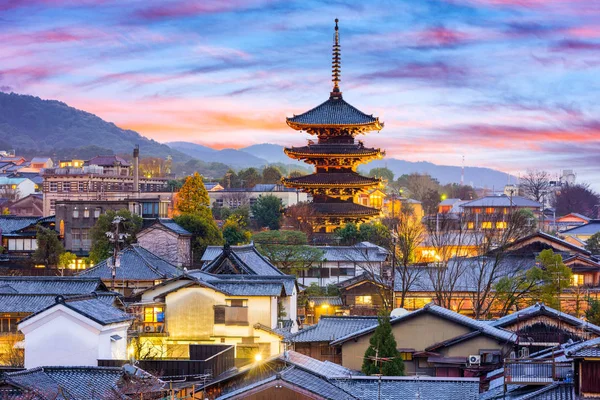
Kyoto
July 31-August 7
Kyoto is known as a cultural, historical, and spiritual hub for Japan since it is home to over 2,000 shrines and temples. Kyoto contains 20% percent of Japan’s national treasures and is the home of 17 locations that are a part of the UNESCO World Heritage sites. Due to the city’s cultural and historical background, many traditions have been preserved since the Heian period making visiting Kyoto a memorable experience.

Kumamoto
August 8 – August 13
Kumamoto is a city on the Japanese Island of Kyushu known as the “Land of Fire” since it is the home of the Mt.Aso volcano. Within Kumamoto, there are various attractions such as the Kumamoto Castle, the Suizenji Jojuen Garden, and the hot springs baths. Kumamoto is far from major cities in Japan such as Tokyo and Osaka making it a rural city. Kumamoto is known for their rural culture and natural landscape that captivates many visitors such as the mountains, the rivers, the rice fields, and the tiny shops throughout Kumamoto.
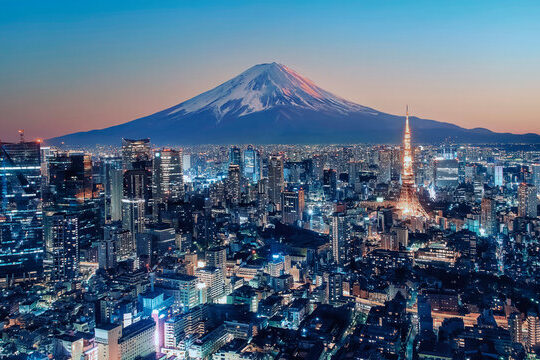
Tokyo
August 14 – August 21
Tokyo is the capital of Japan and is one of the cities with the highest population in the world. Tokyo is Japan’s political, economic, and cultural center and is described as a busy city due to the vast amount of foot traffic that occurs day and night. The city has a mix of modernity and cultural roots, since in Tokyo you can find both the Imperial Palace where the Emperor of Japan resides, and Skyscrapers in the same city. Attractions you can see in Tokyo include the Meiji Jingu Shrine and the Tokyo Skytree. Tokyo grants the possibility to view and learn about the progress being made in the economic, political, and cultural sectors of Japan.
77th JASC Roundtables
What is a Roundtable?
The delegates are split into various Roundtables (RT) to further facilitate genuine discussion. Roundtables are themed academic discussion groups, evenly split with a few members from both the American and Japanese sides. While the topic of the Roundtable tailors discussion to the interests of the members, conversations and research are led by the delegates, with facilitation by Roundtable Leaders.
The primary goal of these groups is to provide delegates the opportunity to engage in open discussion and discover the varied perspectives of their peers. The RTs work together to create presentations for the various forums throughout the conference, notably the Final Forum. These presentations vary widely culminating in the diverse experiences, ideas, and education that each delegate possesses. Roundtables serve to allow the delegates to choose how they want to explore their interests while also exploring the benefits and challenges that come with bilateral communication.
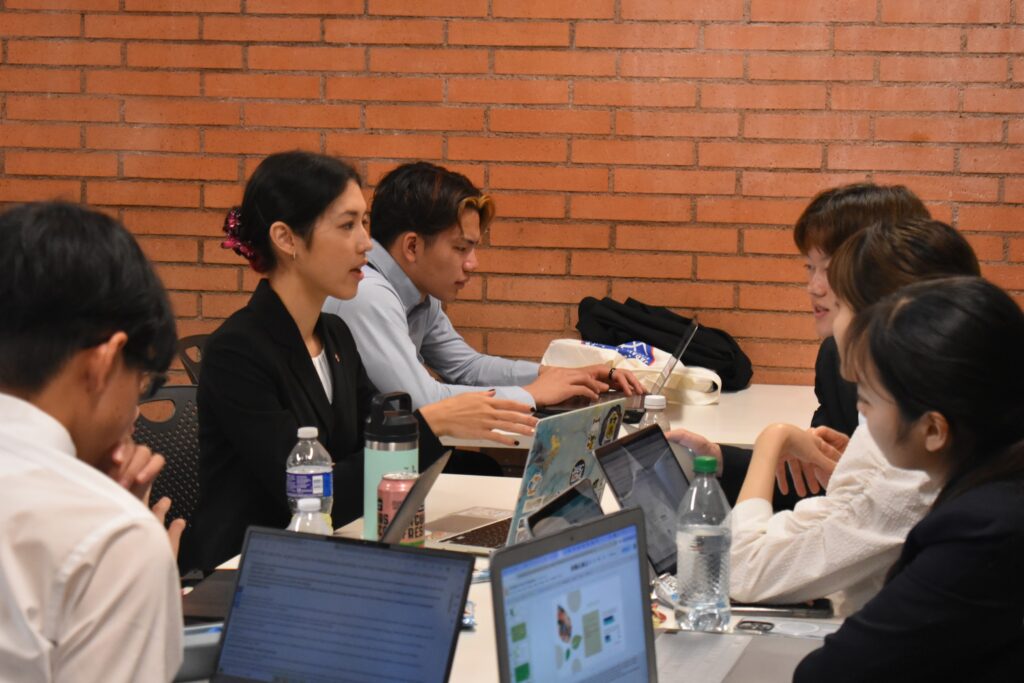
The 77th JASC Roundtables
Japan-US Business Strategies
Led by Brandon (USA) and Ray (Japan)
Business strategies are an important component in many countries’ business realms, and they are a big factor that correlates to growth in production and innovation. Japan and the U.S. are powerful entities in terms of business strategies. Some common strategies that are used are competitive strategies, growth strategies, innovation, and acquisition. Due to successful business strategies, both Japan and the U.S. have many prospering businesses that are recognizable worldwide and generate wealth for their respective countries. It is up to the future entrepreneurs to view and discuss what strategies are in use, what were established in the past, and the reasons behind them, since it will foster new ways to improve upon the strategies and thus create success.
This roundtable will focus on business strategies being implemented currently or in the past by companies based in either Japan or the U.S. Viewing these strategies will allow for discussion on a wide range of topics which can include, a comparison between the two countries, the success rates of the strategy, the reason behind certain strategies, and what alternative strategies could have the companies done. The main goal of the roundtable is for delegates to analyze the business world and view what is working, and what needs fixing to spark innovation and strategies for the future success of the business world.
Food, Culture, and Society
Led by Andrew (USA) and Hanon (Japan)
“One cannot think well, love well, sleep well, if one has not dined well.” Virginia Woolf. This roundtable will explore the subject of food in relation to culture and society. Eating unites us on a daily basis, yet the specific foods we consume distinguish us from one another. At the heart of any dish, there is a legacy of traditions, memories, and shared history, reflecting the values and identities of the people who create and consume it. As each individual food story is unique, we’d love to hear what’s on your plate.
Food will also serve to achieve greater cultural understanding between the US and Japan, transcending the superficial dichotomy of Big Macs and glizzies vs ramen and sushi. Discussion will begin with your personal food experiences, and by moving beyond boring stereotypes, we aim to enrich our collective understanding of each other’s culinary heritages and cultural values.
Furthermore, while many of us are blessed with culinary choices like never before, social issues ranging from health and wellness to food insecurity and globalization of food cultures are significant and cannot go ignored. Your unique insights on these issues will contribute to deeper dialogue about how our food choices tie into societal dynamics and the importance of addressing these challenges.
Environmental Innovation and Entrepreneurship
Led by Emile (USA) and Masahito (Japan)
As the world faces the growing threat of global warming, various countries have convened to solve the environmental crisis. International organizations encourage the world to follow the Paris Agreement’s goal of net zero global emissions by 2050. Although countries struggle to agree on impact limitation and resource sharing, entrepreneurs continue to find innovative solutions to the world’s most pressing problems.
These actors are changing our response to climate change through innovative ideas fueled by evolving technology. Financial markets that fuel entrepreneurship, such as venture capital, shifted to accommodate this boom in environmental technology. Through innovative technologies, entrepreneurs strive to further sustainable solutions. The initial wave of significant investments in climate tech that emerged from Silicon Valley in the early 2000s may have waned, but recent investments in Envirotech have soared due to a renewed interest in environmental technology. Entrepreneurs are now tasked with pioneering new approaches to growing and scaling their products, ushering in an era of innovation.
In the US and Japan, developing an idea into a profitable and sustainable company proves difficult. What role can environmental entrepreneurs play in the private sector? How can entrepreneurs achieve both social impact and secure profits? Through this conference, we hope to explore the role, challenges, and prospects of entrepreneurs in the context of shifting political demands for environmental technology.
Technology, Ethics, and Happiness
Led by Mao (USA) and Haruka (Japan)
Albert Einstein once posed: “Why does this magnificent applied science, which saves work and makes life easier, bring us so little happiness? The simple answer is: because we have not yet learned to make sensible use of it.” In recent years, rapid advancements in scientific technology—such as Artificial Intelligence, CRISPR, and blockchain—have significantly augmented our capacity to address physical and environmental challenges. However, these innovations also carry profound societal and moral implications. As technology becomes increasingly woven into our lives, issues such as privacy invasion, escalating inequality, and environmental degradation pose substantial threats to rights and justice. Echoing Einstein’s insight, it is imperative that we learn to wield these tools responsibly for the collective benefit of society and individuals.
In this context, the urgency of ethical considerations and collaborative efforts—both among scientists and policymakers and between nations such as Japan and the US—cannot be overstated. Our roundtable discussion aims to delve into the ethical dilemmas and explore pathways to a just society through technology from diverse perspectives. Our mission is to ensure that technological advancements are not only beneficial and sustainable but also enhance human well-being. We invite students from all disciplines to engage with these complex issues, drawing on their knowledge and experiences in pursuit of meaningful solutions.
Means and Meanings of Communication
Led by Amy (USA) and Shiho (Japan)
Communication occupies a significant part in our social life. At the very beginning of our human history, people drew signs, used gestures, made sounds, etc. The development of writing systems has given rise to various literary forms, such as poetry, essays, and fictions. In modern times, technological development has brought both improvements and challenges to the traditional ways of communication. Social media platforms have tightened the relations between individuals and their society by overcoming the limitation of time and space. However, the flood of information on these platforms has become overwhelming. Furthermore, translation apps and Generative AI have, somehow, demonstrated their potential in enabling us to cross language barriers, but does it mean true communication? To initiate dialogues that allow the existence of different perspectives and contribute to a mutual understanding keeps being a challenging task. As global citizens, it is also important to consider how the current mechanism of communication might work differently for various social groups, such as gender, race, and ethnic minorities.
In a word, by discussing how and why we communicate, this RT aims to explore the evolving relations between self and society, and how future ways of communication could correspond to our ever-changing human needs.
Aesthetics in Design and Media
Led by Rachel (USA) and Masato (Japan)
The forms of the pursuit of “truth, goodness, and beauty,” which have been emphasized differently across eras and cultures, continue to change in modernity alongside the development of a materially fulfilled consumer society. The truth often becomes obscured due to the dissemination of information on social media. The definition of goodness is based on not only religious values but also societal and ethical values. Beauty standards have transformed due to commercialism and technology.
Delegates will be focusing on the exploration of this “aesthetic inquiry” in Japan and the United States and understanding each other’s cultural backgrounds is essential for removing stereotypes and promoting deeper mutual understanding. This roundtable will focus on the exploration of aesthetics as reflected in design and media, such as the arts, fashion, film, and social media, which significantly contribute to the formation of cross-cultural recognition in both countries. Additionally, it aims to cultivate cultural sensitivity, which serves as a tool for objectively surveying the coexistence and conflict of cultures and promoting global cultural exchange.
International Politics in the Indo-Pacific
Led by Hudson (USA) and Tomoki (Japan)
The modern Japan-US relationship consists of complex political, economic, and military dynamics, which must be understood not only on their own, but also in the context of East Asia, the Indo-Pacific, and the global stage. Japan and especially the US have ever changing domestic political situations which affect each nation’s stances on various interests and issues. The diplomatic systems through which nations communicate are also heavily influential. Economic security is threatened as trade barriers and tariffs continue to rise globally, and the global economy becomes increasingly reliant on Taiwan’s semiconductor manufacturing while Taiwan’s sovereignty is threatened by Chinese aggression. This is intertwined with the Japan-US military relationship, as some American political factions seek to reconsider America’s military role in East Asia, and American military presence in Japan and Japan’s own expansion of capabilities continue to cause controversy. Access to and the cost of energy, as well as the environmental costs of obtaining it, are also ever important. As these issues are considered in relation to East Asia, we must also understand the impacts of other nations in the Indo-Pacific, including Southeast Asia, the Indonesian Archipelago, and the emerging economies of the Indian Subcontinent.
77th JASC Executive Committee
What is the Executive Committee?

The Executive Committee (EC) is the collection of students responsible for planning and running each Japan-American Student Conference (JASC). The entire committee is composed of the American Executive Committee (AEC) and the Japanese Executive Committee (JEC). Members take on various roles, such as Roundtable Leader, Site Coordinator, and unique positions within their country’s committee. The members work together to establish unique theming and programming and strive to create an unforgettable experience for the next delegates. At the end of each conference, an election is held to establish the next conference’s Committee members.
Working as an EC is an invaluable experience. Each member develops their leadership skills and critical collaboration skills within the US and in international collaboration. The AECs work closely with our parent organization, International Student Conferences (ISC), receiving valuable advice in understanding the nuances when running a conference.
The 77th JASC Executive Committee
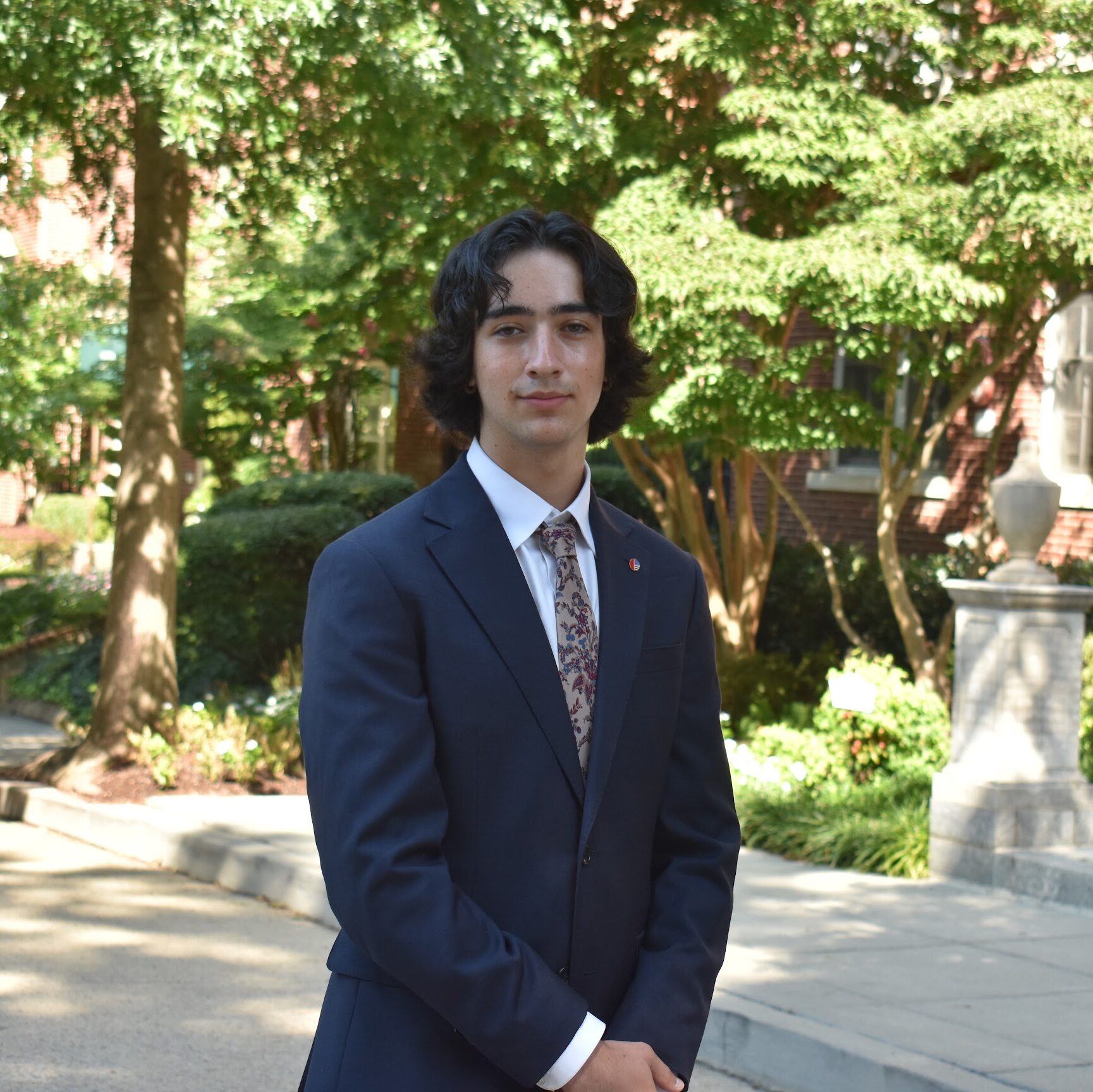
Sam Helman – Chair
Hello! My name is Sam Helman, and I am the chair of the American Executive Committee. I am from Columbia, South Carolina, and I am currently attending Wake Forest University studying political science and Japanese. On campus, I’m the community engagement chair of our Japanese studies club, a resident adviser, and I’m involved with the environmental sustainability department. In my free time, I enjoy exploring the North Carolina mountains, creating terrariums, and cooking with friends.
To me, JASC is beautiful because it feels like you are living a lifetime of new experiences and meeting wonderful people all within a single month. The conference taught me to consider more, to spend more time thinking about the perspectives of those around me, and realize them before I acted. Observing both Japanese and American delegates interact was valuable because, despite our differences, we worked together to create solutions, and found friendship along the way. In JASC 77, I aim to lead my fellow peers and new delegates to help facilitate an environment in which all delegates can flourish and grow.
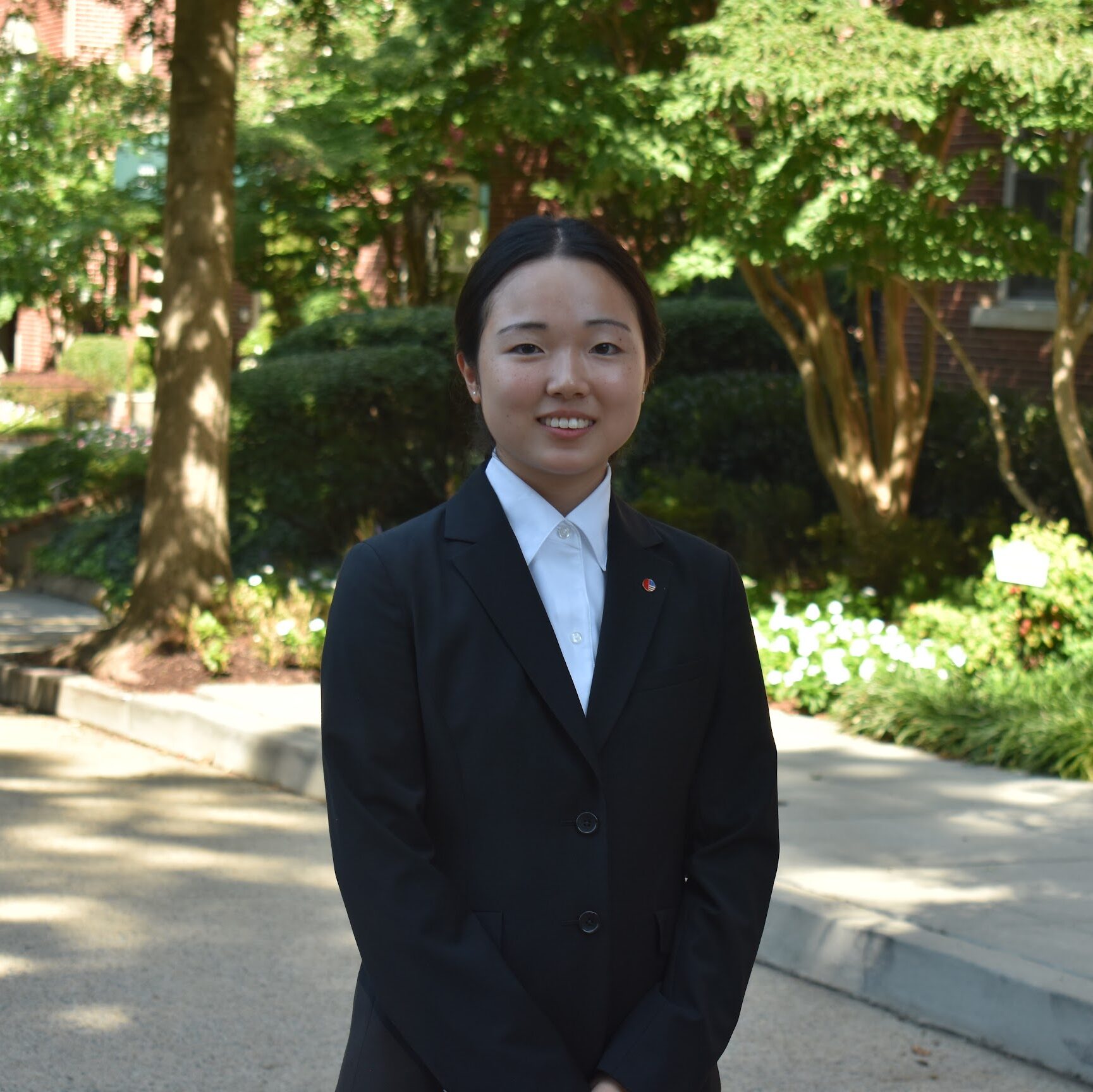
Mao Kobayashi – Vice Chair
Hello! My name is Mao Kobayashi, and I’m the Vice Chair for the American Executive Committee. I was born in Japan but spent much of my adolescent years moving between Japan and Maryland. I am particularly interested in the fields of agriculture and international development. Outside of classrooms, I enjoy conducting research in my Plant Biology labs and our greenhouse, being outdoors, reading, and spending time with my friends.
Growing up in both countries, I had navigated the space between cultures, but it wasn’t until JASC that I truly experienced the intersection of these worlds. Surrounded by compassionate, insightful, and driven peers, I witnessed the profound impact of cross-cultural interactions, not only gaining a deeper understanding of the U.S.-Japan relations but also discovering new facets of each country and myself. I am excited to create an environment that nurtures friendships and fosters inspiring discussions together with our EC team and new delegates – transcending cultural differences to build a more connected and empathetic community.
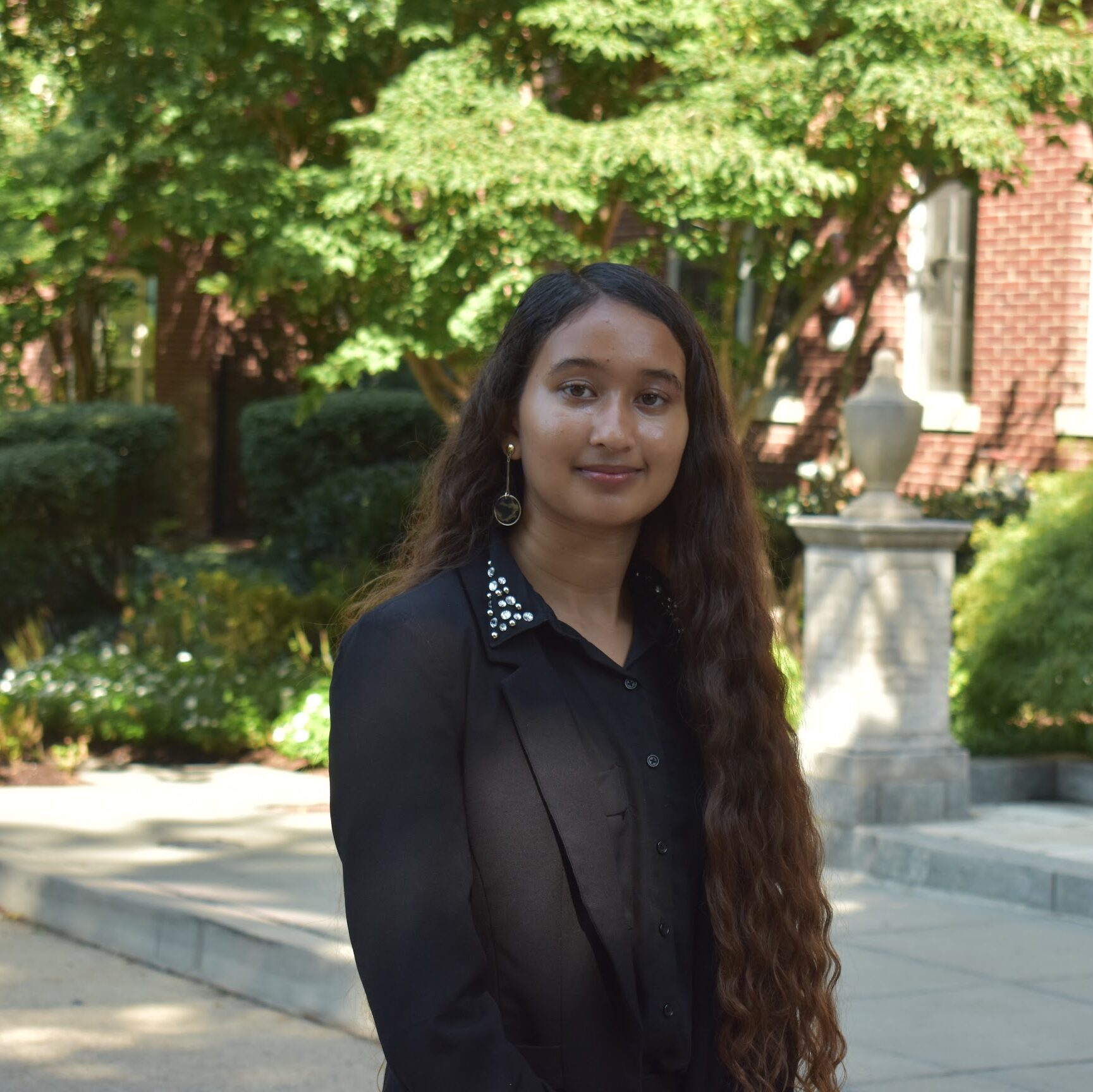
Emile Shah – Secretary
Hello! My name is Emile Shah, and I’m the Secretary of the American Executive Committee. I’m from Riverside, California and major in Data Science and Political Science at UC Berkeley. I’ll be leading the Environmental Innovation and Entreprenurship Roundtable. At school, I’m involved in organizing our annual MUN conference, an editor for our newspaper and political review, and an executive member in a girls’ venture capital club. In my free time, I like to cook, play video games, and listen to music!
JASC76 was an amazing opportunity to meet and discuss with students from different backgrounds and perspectives. I made wonderful friends and learned more about my interests and future passions. I ran for JASC77 to work towards fostering an environment for delegates to learn about new perspectives and develop their passions, interests, and ideas. I hope to create a space for delegates to have insightful discussions, forge strong bonds, and broaden their perspective as a global citizen.
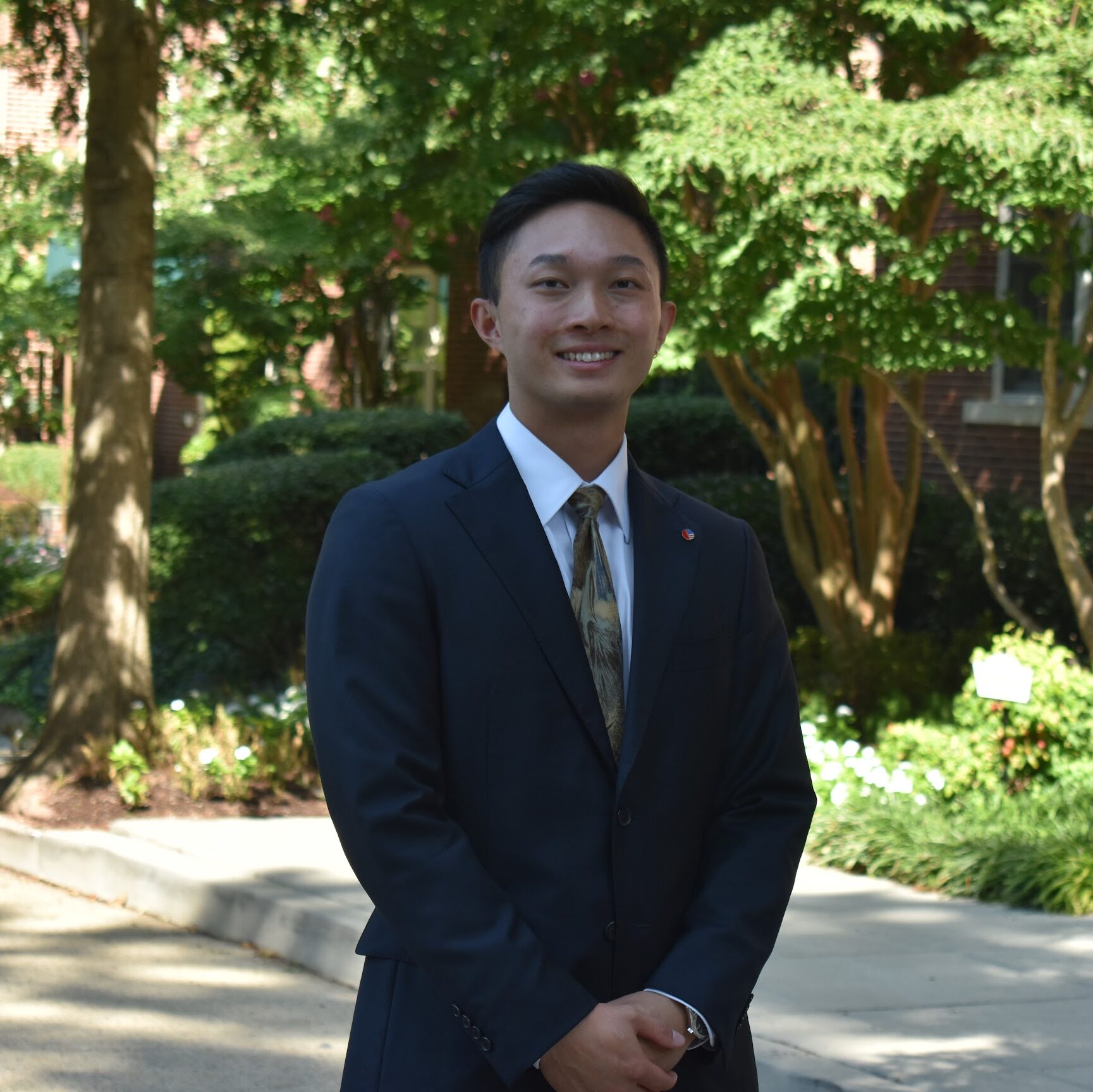
Andrew Lei – Treasurer
Andrew will serve as treasurer and run the “Food, Culture, and Society” roundtable. He was born in Canada and enjoyed growing up in Arkansas. During the pandemic, he took a leap of faith by deciding to study in Japan at Osaka University, where he has been absorbing the culture, acquiring the language, and writing his senior thesis on Japanese national security. He also likes jazz and plays tennis for fun.
JASC76 was a way for Andrew’s life experiences living in the US and Japan to come to a point. A proponent of inclusion, his JASC76 goal was to help bridge the cultural gaps between Japanese and American delegates. The meaning Andrew derived from his experience as a delegate serves as his motivation to serve in JASC 77, for which he hopes to create an environment where Japanese and American students can collaborate, bond, and solve the world’s hardest problems together.
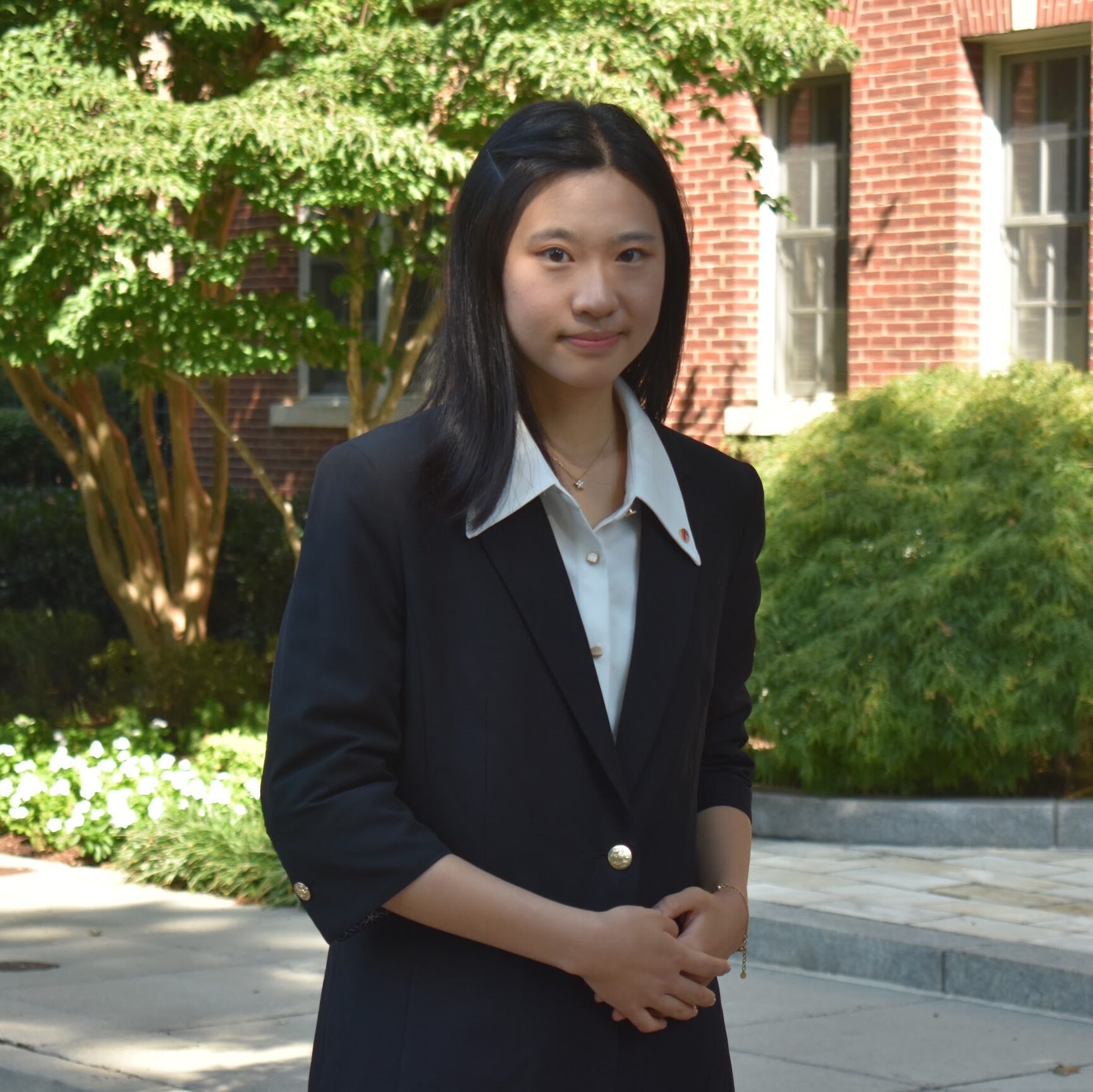
Amy Wu – Co-Chair of Logistics
Hi there! This is Amy. I am responsible for logistics and planning, and will lead the “Means and Meanings of Communication” RT. I am currently a senior at Smith College, and my major is World Literatures (aka. Comparative Literature). I enjoy reading, interpreting, translating, and writing. Whenever possible, I wake up early in the morning and enjoy a jog outside. I also love exploring cute restaurants, cafes, and bookstores with friends in my free time. Photography also counts as one of my hobbies (I am usually too lazy to take out my camera from the bottom of my suitcase though).
In JASC76, as a delegate, I was able to gain many great memories, generate friendships, and achieve personal growth. Realizing JASC has been such a wonderful opportunity for me to connect to like-minded individuals coming from a different background, I want to pass on this legacy via my own hands, and make your experiences even better. Therefore, I hope you all enjoy JASC77 and will be able to build wonderful interpersonal relationships with fellow delegates, through engaging in deep, meaningful conversations while exploring Japan!
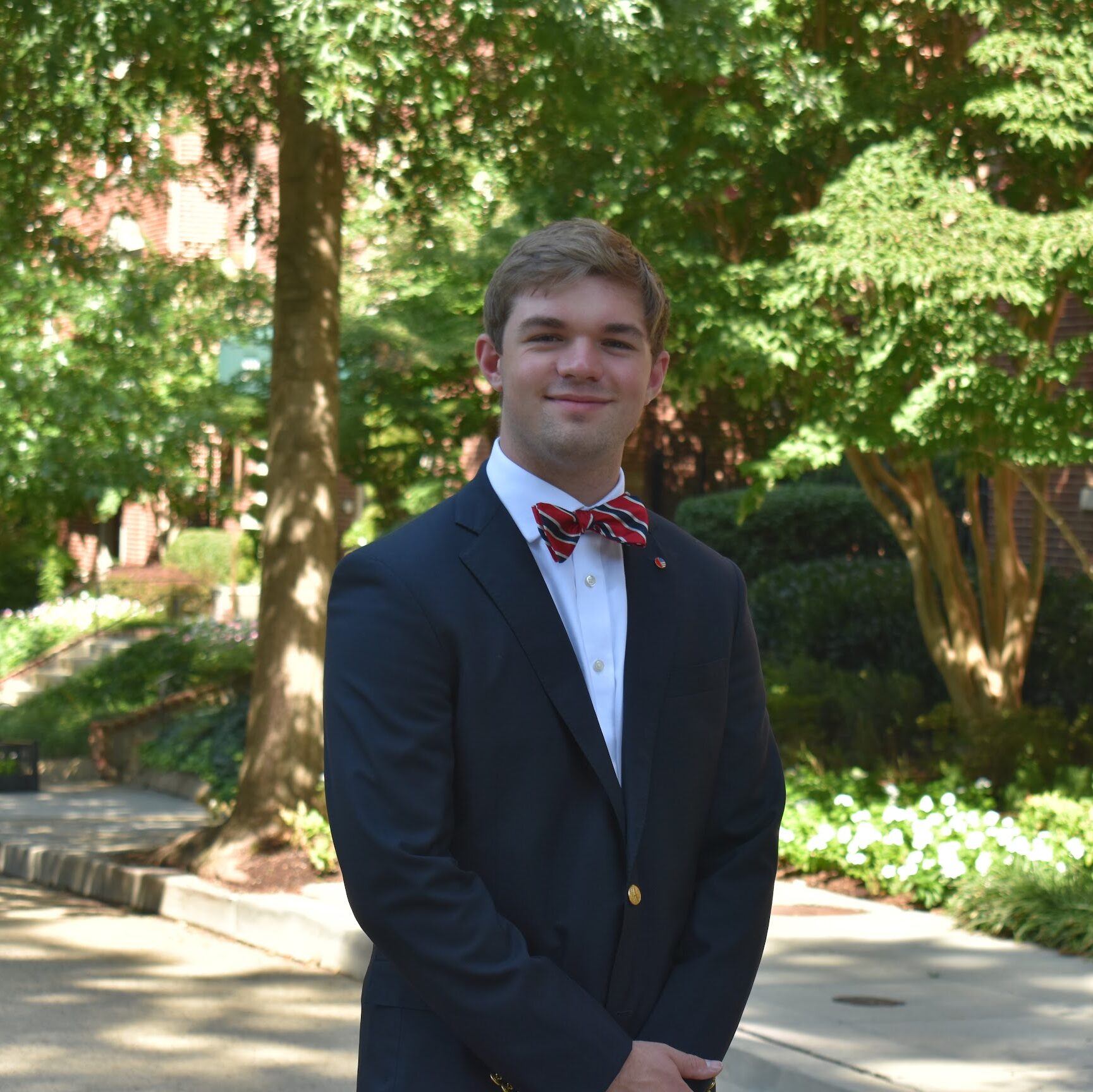
Hudson Pitchford – Co-Chair of Logistics
My name is Hudson Pitchford, and I’ll be working with Amy on conference logistics and leading the International Politics in the Indo-Pacific roundtable at JASC 77. I am a second year student at Washington and Lee University, majoring in Engineering with a possible minor in Japanese. I live in Chesterfield, Virginia (just south of Richmond), though I’m originally from Paducah, Kentucky. I love robotics, watching sports, and reading books and manga.
I joined the JASC 77 Executive Committee because I feel a responsibility to provide the same valuable experience I had during JASC 76. I learned how to create productive discussions on controversial topics, incorporating and understanding opposing ideas and world views. More importantly, my time at JASC taught me about pragmatic, interpersonal, cross-cultural conflict resolution, and openly accepting constructive criticism. On top of these personal lessons, I was also driven to take a more active role in keeping up with and caring about current events and the world around me, a desire I had lost for some time. JASC is, first and foremost, a gathering of people, and the interactions we have, the relationships we create, and the bonds we build are what make it truly transformative.

Rachel Collins – Co-Chair of Recruitment, Publicity and Technology
Hello! My name is Rachel Collins, and I’m the co-chair of recruitment, publicity, and technology. I’m from Purcellville, Virginia, and I am majoring in Japanese and Geoscience at Washington and Lee University. Outside of class, I can be found in University Theater, working in my university’s Costume Shop, working in environmental sustainability clubs, helping my sorority, walking in nature, or hanging with any animals I can. Additionally, I love music and crafts like knitting and crocheting.
I found JASC 76 to be an incredibly impactful experience for myself. I grew immensely as a community member, a leader, and a unique person. My goal for JASC 77 is to create an environment that cultivates these opportunities for the delegates and allows them to both enjoy the perks of bilateral communication, while also growing from the difficulties. Each individual should express their opinions freely and openly while also taking the time to understand perspectives that are not their own, regardless of agreeance.
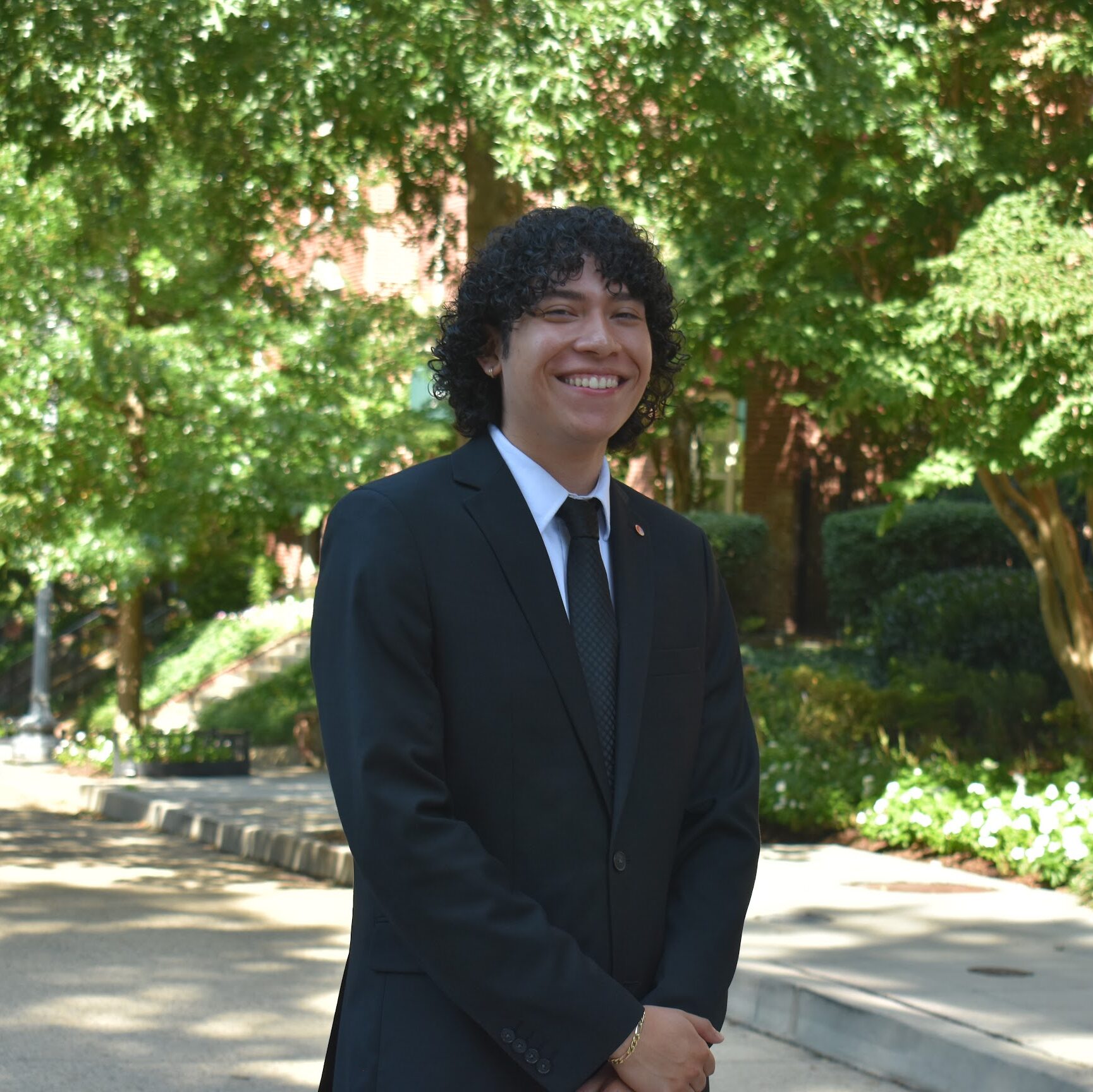
Brandon Rivera De Leon – Co-Chair of Recruitment, Publicity, and Technology
Hey y’all, I’m Brandon Rivera De Leon, and I will be serving as the co-chair of recruitment, publicity, and technology. I was born in Sun Valley, California but mostly grew up in Green Bay, Wisconsin. I am currently a Consumer Behavior Marketplace Studies Major with the ambition to get my Master’s in Marketing and a certificate in International Business at the University of Wisconsin-Madison. Aside from school work a big passion of mine is Music, I am an associate director of promotion for WUD Music which is one of the organizations I am involved with. You will catch me participating in hosting and attending concerts here in Madison, WI, playing guitar, listening to music, going on bike rides, and playing video games.
During my time at JASC76, I found it to be a very great educational and thought-provoking experience. I enjoyed conversing with fellow delegates and bonding over the trips we had over the conference. My main takeaway was the relationships formed during the conference, I met many amazing people and found their discussions to be very impactful as well. My goal for JASC77 is to create an experience that fosters bonding and conversations. I want the conference to have delegates be able to converse about difficult topics comfortably and also be able to leave the conference with great memories and new long-lasting friendships.